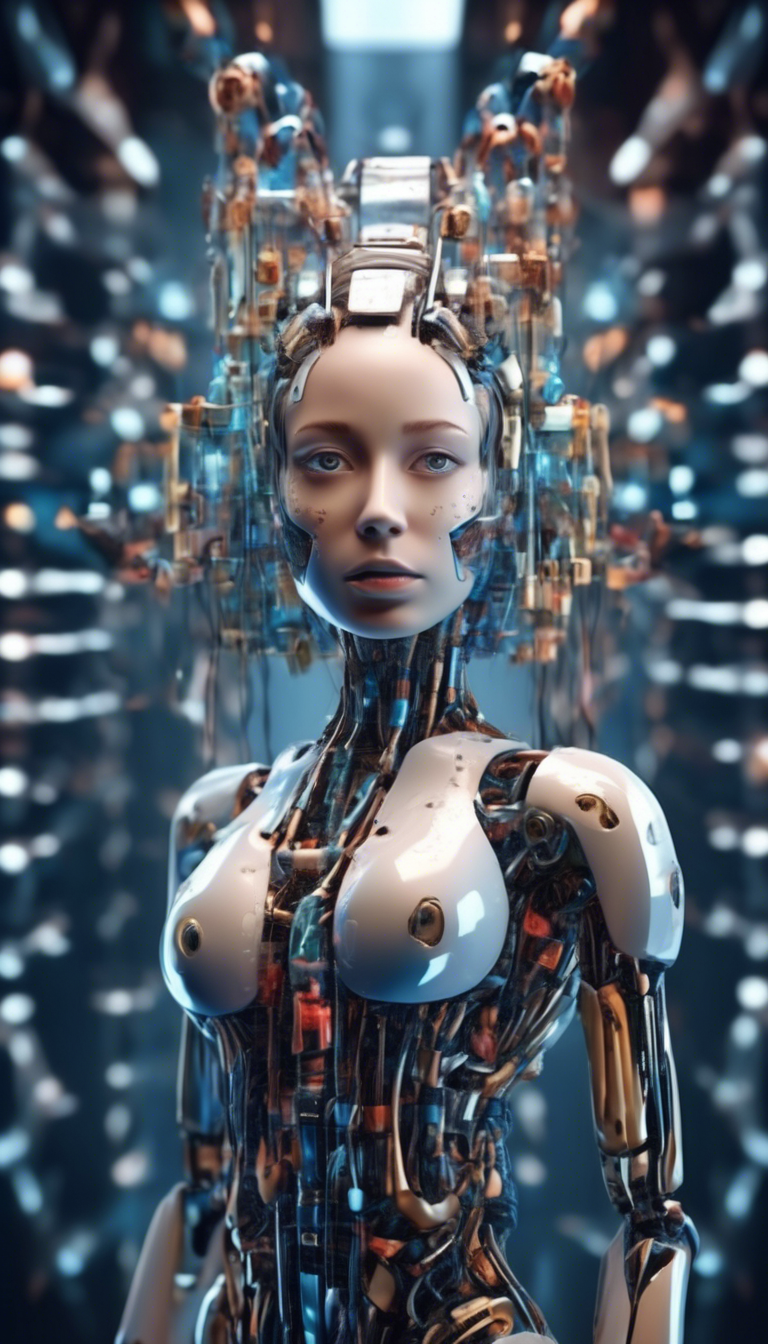Exploring the Role of AI in Transforming Content Creation Processes
Artificial intelligence (AI) is redefining the landscape of content creation, introducing innovative methods that enhance efficiency and creativity. This technology enables creators to streamline processes, allowing them to focus more on storytelling and less on mundane tasks. Understanding the various applications of AI in this field can help content creators transform their workflows, produce high-quality materials, and keep audiences engaged.
Enhancing Writing Efficiency
One of the most significant ways AI contributes to content creation is through writing assistance. AI-powered tools like grammar checkers and style enhancers analyze text for grammatical accuracy and readability. These applications not only suggest corrections but also help in enhancing the overall flow of writing. By leveraging such tools, writers can:
- Improve sentence structure.
- Eliminate repetitive phrases.
- Enhance clarity and conciseness.
This boost in efficiency allows writers to produce content faster without compromising quality, freeing them up to engage in the creative aspects of their projects.
Content Generation
AI excels at generating content on various topics. Tools like OpenAI’s GPT models can create articles, blog posts, and even poetry, helping writers who may struggle with writer’s block or those who need fresh ideas. The benefits of using AI for content generation include:
- Rapid content creation tailored to specific requirements.
- The ability to generate content in multiple formats.
- You can produce customized pieces to cater to different audience segments.
Content creators can utilize these AI-generated drafts as a foundation, allowing for further refinement and creativity. This can significantly reduce the time spent on the initial stages of content creation.
SEO Optimization
Search engine optimization (SEO) is crucial for content visibility. AI tools help optimize content by analyzing relevant keywords and suggesting strategic placements. Here’s how AI can elevate SEO efforts:
- Keyword analysis: AI can identify trending keywords, informing writers which terms to incorporate.
- Content structuring: AI tools suggest the best format and structure for content to rank higher on search engines.
- Performance tracking: AI analyzes how well specific content performs over time, allowing for timely adjustments.
Through intelligent optimization, creators can more effectively reach their target audience, all thanks to the insights provided by AI technologies.
Personalization of Content
With AI, content can be tailored to individual user preferences. This personalization helps brands connect more deeply with their audiences. By analyzing user behavior and preferences, AI can suggest topics or formats that are more likely to resonate with specific demographics. Personalization in content creation can result in:
- Higher engagement rates.
- Increased customer loyalty.
- Better conversion rates due to tailored messaging.
Creators who embrace these AI capabilities will find themselves better equipped to foster relationships with their audiences, ultimately driving more meaningful interactions.
Content Curation
AI plays a significant role in curating existing content, ensuring that creators can provide valuable information effectively. Through advanced algorithms, AI can sift through vast amounts of data and recommend relevant articles, videos, and other resources. The advantages of AI in content curation include:
- Saving time by automating the research process.
- Gathering diverse viewpoints from various sources.
- Ensuring content remains fresh and relevant.
By utilizing AI for curation, content creators can deliver richer, more informative pieces without the extensive manual research typically required.
Future Prospects
The future of content creation lies in the synergy between human creativity and AI’s capabilities. As technology evolves, we can expect even more integrations, such as AI-driven content analytics and predictive content strategies. For example, AI could analyze past content performance and forecast what types of content might engage audiences in the future. This predictive aspect enables creators to stay ahead of trends and produce timely, relevant works.
Ultimately, embracing AI in content creation can revolutionize the way writers and marketers produce and disseminate their work, making processes smoother, faster, and more audience-focused. The collaborative potential of humans and AI can lead to richer storytelling, more effective marketing strategies, and a deeper connection with audiences than ever before.
The Future of Creative Writing: AI-Assisted Techniques and Tools
The evolution of technology has always been interwoven with the art of storytelling. As artificial intelligence continues to advance, it is increasingly becoming a vital tool in the realm of creative writing. The integration of AI in content creation is not merely a trend; it’s shaping the very future of how we write, edit, and conceive narratives.
AI-assisted techniques and tools offer exciting possibilities for writers. For instance, they can analyze an extensive range of text data, enabling them to gain insights on trends, styles, and even audiences. This data can be pivotal for writers seeking to refine their craft. One example is how AI can evaluate various writing styles to help authors identify and enhance their unique voice. This personalized feedback loop drives improvement and growth.
Moreover, AI-powered writing tools can assist in brainstorming ideas. A simple prompt can lead to an avalanche of creative suggestions, which can help overcome writer’s block. Imagine sitting down with a digital assistant that offers ten different plot twists based on your initial concept. This enrichment of the creative process is transformative, making the act of writing more dynamic and less daunting.
On top of brainstorming, AI technology can streamline the writing process itself. Here are some ways it can do so:
- Grammar and Style Checks: Advanced AI tools ensure your writing is polished by spotting grammatical errors and inconsistencies.
- Content Suggestions: They offer sentence rephrasing options or synonyms, improving your writing’s quality and range.
- SEO Optimization: AI can analyze your text and suggest keywords to boost visibility and engagement on search engines.
- Genre-specific Advice: Depending on the genre you’re writing in, AI can provide recommendations tailored to conventions and tropes.
AI’s ability to analyze audience engagement metrics also stands out. By assessing how readers interact with various narrative styles or themes, writers can tailor their content to meet audience preferences more effectively. Thus, writers can build an effective strategy based on data, not just instinct. This data-led approach aids in crafting stories that resonate deeply with readers, making them feel more connected to the narrative.
While the benefits are significant, it’s worth exploring some challenges posed by the rise of AI in creative writing. One concern is the potential loss of originality. As AI generates content based on existing data, it may inadvertently lead to homogenization of ideas. To combat this, writers can use AI as a tool rather than a crutch, ensuring their unique voice and creativity permeate every piece they craft.
Furthermore, ethical considerations loom over AI’s role in content creation. Issues such as plagiarism and authorship rights can surface if not properly addressed. Writers must be vigilant, ensuring that their work remains authentic and reflects their originality, despite any AI assistance they may utilize.
Looking ahead, the collaboration between human creativity and AI technology promises to redefine storytelling. As the landscape of creative writing evolves, one can expect to see advancements in AI that will further enhance narrative development, character creation, and world-building. Writers may soon find themselves co-authoring stories with AI, blending imaginative skills with computational prowess.
Ultimately, writers embracing AI in their creative process can leverage these advanced tools to refine their work while preserving their distinct voices. The synergy of man and machine creates a richer canvas for storytelling, one that respects tradition while pushing the boundaries of what’s possible in narrative forms.
As we forge into the future of writing, embracing AI-assisted techniques is not merely an option but an asset that can enrich our storytelling. By combining our innate creativity with AI’s analytical capabilities, writers can innovate and expand their craft, ensuring that storytelling remains a vibrant, evolving art form.
Conclusion
The integration of artificial intelligence in content creation marks a pivotal shift in how we approach writing and storytelling. With AI’s ability to analyze vast amounts of data, generate insights, and even produce written content, it has fundamentally transformed the processes traditional content creators rely on. No longer do writers operate in a vacuum; they now have sophisticated AI tools at their disposal that not only streamline their workflow but also enhance their creative capabilities.
When examining the role AI plays in the content creation landscape, it’s important to highlight how it fosters efficiency. Automated tools can now perform routine tasks such as keyword research, audience analysis, and even drafting initial templates. This alleviates the burden of repetitive actions, allowing writers to focus on more creative aspects of their work. AI algorithms can sift through countless articles and determine trending topics, providing content creators with insights that were previously time-consuming and labor-intensive to gather. By serving as a digital assistant, AI empowers writers to produce high-quality content faster, helping them stay ahead in an increasingly competitive digital marketplace.
Additionally, AI’s contribution doesn’t stop at mere assistance; it also encompasses coaching and enhancement. Writers can utilize AI-powered applications that offer real-time suggestions to improve grammar, style, and even tone. These tools encourage writers to refine their skills, making them more versatile in adapting their voice for different audiences. As AI continues to evolve, the feedback loop between human creativity and machine learning becomes more robust, potentially leading to new forms of storytelling that merge human touch with precise data-driven insights.
The future of creative writing is seamlessly intertwined with AI-assisted techniques. Writers starting to explore AI are discovering how these tools can enhance their ideation processes. For instance, AI can analyze reader preferences and demographic data to suggest ideas tailored specifically for target audiences. This addition not only enhances originality but also significantly increases the chances of audience engagement. Writers are learning to view AI as a collaborator rather than a replacement, allowing them to bring forth ideas that resonate more deeply with their readership.
AI’s role in content creation also opens up new avenues for personalization. By leveraging AI algorithms, content creators can develop highly tailored content experiences. By analyzing the characteristics of specific audiences, these technologies can help craft narratives that align with individual preferences, thereby strengthening the bond between creators and consumers. Imagine a reader receiving custom-tailored articles, stories, or content suggestions based on their unique interests—this is not just the future; it’s a reality made possible through the deployment of AI in content creation.
Moreover, as we look toward a future where AI and creative writing coexist, it becomes clear that humans still hold the reins over creativity and emotional connection. While AI can provide structure and inspiration, the essence of storytelling—capturing human experiences, emotions, and insights—remains a uniquely human endeavor. Writers who harness AI’s capabilities effectively stand to benefit from an enhanced creative process without relinquishing the storytelling touch that defines their craft. The challenge lies not in replacing human writers, but rather in embracing AI as a partner that amplifies their potential.
In navigating this new terrain, writers must remain vigilant. The over-reliance on AI can lead to homogenized content and a lack of genuine voice. As AI tools become more widespread, the risk of creative stagnation grows. Writers must balance utilizing these advanced tools with maintaining their unique styles and storytelling flair. This balance will be critical in ensuring that future content remains fresh, distinctive, and memorable in an oversaturated digital landscape.
Ultimately, the combination of AI and content creation offers immense possibilities. For those willing to embrace the change and adapt, this collaboration presents an exciting frontier that promises to enrich the creative processes. As we move forward, writers should aim to cultivate a relationship with AI that enhances their storytelling while staying true to their individual perspectives. Embracing the synergies between human creativity and artificial intelligence could lead to a new renaissance in digital storytelling—one where creativity flourishes, anchored by technology that amplifies rather than replaces the human touch. This transformation beckons a future where the art of writing thrives, uniting the best of both worlds in a harmonious narrative ecosystem.


